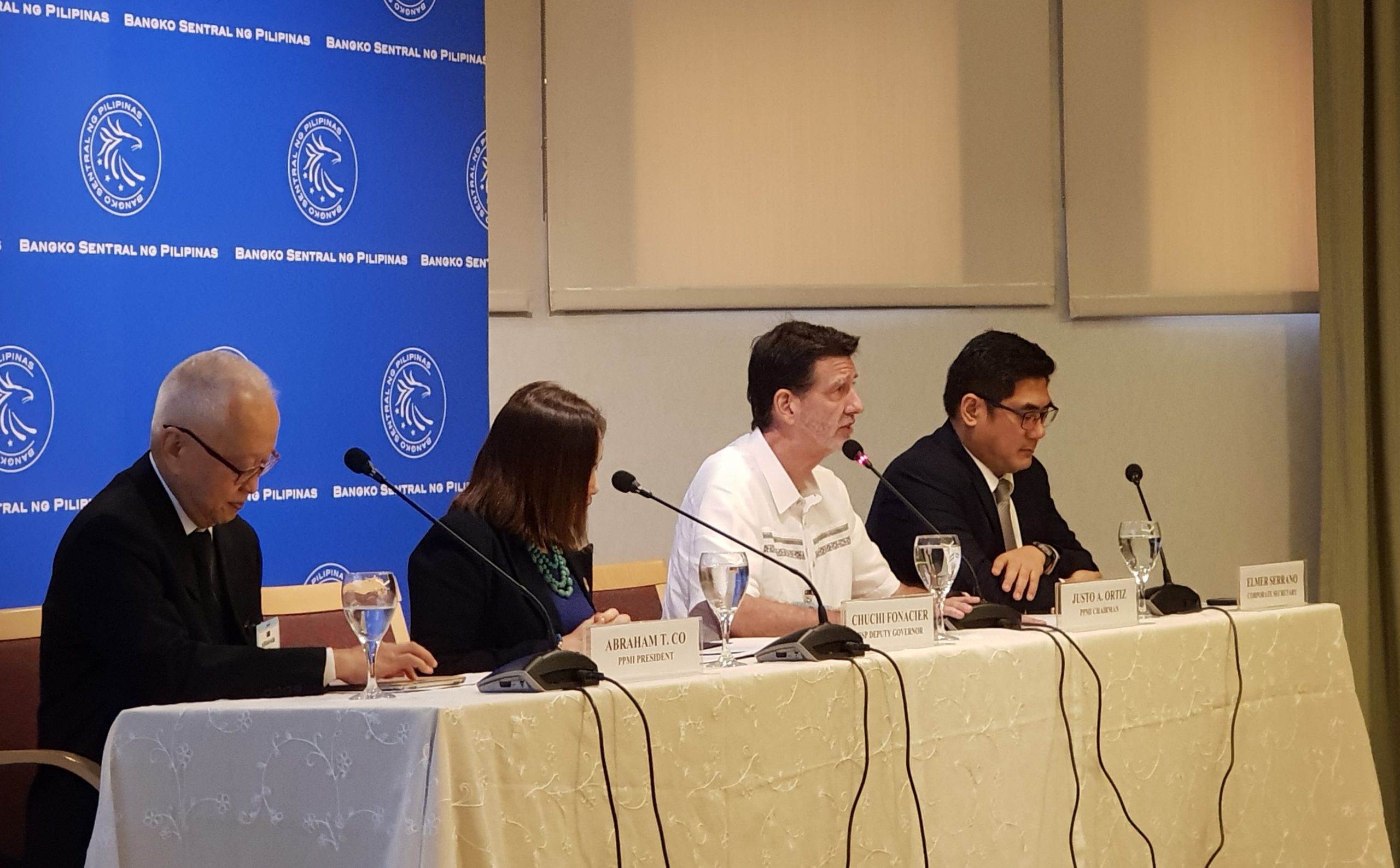Banks and e-money issuers urged to help consumers transition to e-payments

- PPMI supports BSP in overseeing the electronic funds transfer services such as InstaPay and PESONet.
- Instapay transactions reached a total of P96.42 billion in March and April.
- PESONet transaction also reached P57.39 billion during the same period.
The Philippine Payments Management, Inc (PPMI) urged its members to continue helping consumers use online and mobile banking amidst the continuing quarantines caused by the COVID-19 pandemic.
“Banking should be available to everyone anytime and anywhere, reliable, real-time, safe, secure, cheap, and accessible. We are prepared and ready to embrace digital to make this real and part of normal,” PPMI Chairman Justo Ortiz said.
He added, “We encourage our members to continue pushing for digital payments usage to their customers. With the restrictions in movement due to different levels of quarantine, banking services must continually be made available to consumers through means that will be safe for the customers and the providers as well.”
PPMI supports the Bangko Sentral ng Pilipinas (BSP) in overseeing the electronic funds transfer services such as InstaPay and PESONet. These enable individuals, businesses and even the government to transfer money to other accounts in other banks through online banking and/or mobile apps.
There has been an exponential increase in the adoption of digital or electronic payments in the past years. The number of Instapay transactions from March until April was at 15.56 million, which was 3.9 million or 34.50 percent higher compared to figures during pre-ECQ months in January to February which was at 11.57 million.
The value of Instapay transactions in March and April amounted to a total of PHP 96.42 billion pesos and was higher by 27.44 percent or PHP 20.76 billion versus the previous two months of this year pre-ECQ. On the other hand, PESONet transaction value during the same period was higher by PHP 57.39 billion or 21.54 percent as compared to the combined figures from January and February.
“InstaPay enables our kababayans to send and receive money immediately to loved ones and to other banks with transaction fees waived, to pay for bills and food, and even to send in-kind or cash donations without having to leave their own homes. We also see communities formed through online platforms helping each other through donations, crowdsourcing, and supporting small to medium-sized enterprises (SMEs) producing food and other essential goods,” Ortiz shared.
He added: “PESONet on the other hand is a convenient and efficient alternative to checks as it allows businesses to send in bulk payments to their suppliers, distributors and employees.”
For individuals who wish to activate their online or mobile banking facilities, the following PPMI members[1] allow for online activation of digital banking facilities: Asia United Bank Corporation, Bank of Commerce, Bank of the Philippine Islands, BDO Unibank Inc, China Bank Corporation, East West Banking Corporation, G-Xchange Inc (G-Cash), Land Bank of the Philippines, Metropolitan Bank and Trust Company, PayMaya Philippines, Philippine National Bank, Philippine Savings Bank, Rizal Commercial Bank Corporation, Robinsons Bank Corporation, Security Bank Corporation, Sterling Bank of Asia Inc, Union Bank of the Philippines, and United Coconut Planters Bank.
Cybersecurity in the ‘new normal’
While the COVID-19 pandemic has increased usage of digital payments, there has been an observed increase in attempts at scams and financial crimes.
“Given the surge on e-payments usage, we remind both our bankers and users to be on full alert for online scams and financial crimes, which have increased during the ECQ. We also call on our banks and e-money issuers to continuously enhance and increase their capacity to accommodate the surge in e-payments and protect its consumers through continuous systems upgrade and enhanced online security measures against cyberthreats,” Ortiz said.
PPMI expects digital payments usage to be part of the new normal in the aftermath of the COVID-19 pandemic. Banks and e-money issuers thus have the task to continue building awareness, customer service quality and trust on digital payments to its customers.
“We continue to partner with the BSP, our banks and e-money issuers in creating a more conducive environment for digital transactions especially as the government continues to ease restrictions and while adjusting to the new normal. We support the call of BSP Governor Benjamin E. Diokno to our kababayans to shift to the easy, safe, secure and convenient e-payments for your transactions even after COVID-19,” Ortiz said.
Ortiz also encouraged consumers to get information on digital payments from their banking institutions’ websites and social media accounts. “Consumers have a role in educating themselves about using digital payments, and ensuring that they secure their accounts. A lot of information is available online, such as in BSP’s social media platform for financial education advocacy, Pisolit,” he added.
Earlier, in April 2020, BSP Governor Diokno championed the use of e-payments amid the Luzon-wide ECQ to minimize face-to-face transactions and to curb the spread of COVID-19. The BSP’s financial literacy and inclusion initiative has also initiated a campaign, “#SafeAtHome with E-Payments” with the support of the PPMI and USAID/E-PESO, to promote digital payments with the banked segment of the population.
__________
USAID/E-PESO is a project funded by the United States Agency for International Development that aims to help transition the Philippine economy from cash/ checks to electronic payments for broader-based economic growth and financial inclusion. USAID/E-PESO is in partnership with the Bangko Sentral ng Pilipinas and the payments industry in the ongoing #StayAtHome with E-Payments communications campaign to encourage Filipinos to use digital payments especially during the COVID-19 global pandemic.
PPMI is a self-governing body and partner of Bangko Sentral ng Pilipinas (BSP) in overseeing the payments industry and ensuring the implementation of the National Retail Payments System (NRPS) Framework. The NRPS framework of BSP seeks to promote the modernization of retail payments and ensure access to financial services so that Filipinos, both banked and unbanked, could conduct transactions anytime.
[1] https://www.philpayments.org.ph/post/digital-payments-amid-ecq

